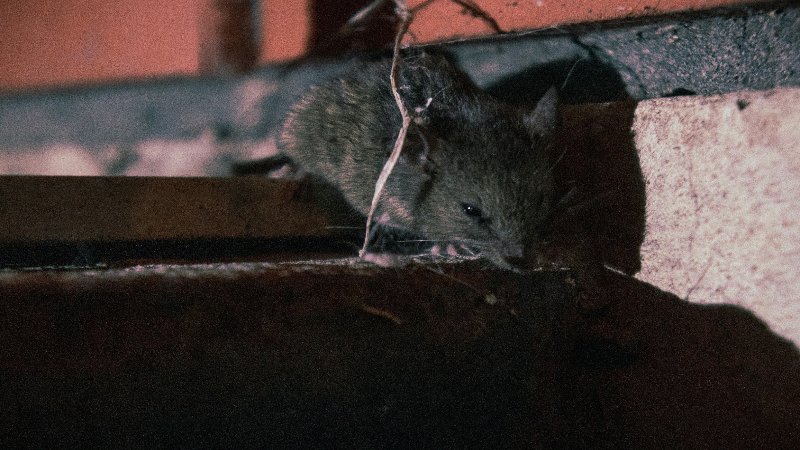As the colder months arrive, many people assume pest problems fade away with the summer. Unfortunately, winter is one of the busiest times for pests, as both rodents and insects seek warm, sheltered spaces with a steady food supply.
Homes, garages, and commercial properties provide the perfect environment for survival. If left unchecked, infestations can grow quickly, leading to structural damage, health risks, and unnecessary stress.
This blog explores how to protect your property from winter pests and why taking preventive action early makes all the difference.
Why Winter Pests Are a Serious Problem
When temperatures drop, pests adapt by moving indoors. Rats and mice can squeeze through gaps as small as a 50p coin, while cockroaches and ants exploit cracks in walls or floors to enter. Once inside, they breed quickly and spread bacteria. Rodents gnaw on wires, insulation, and wood, creating fire hazards and weakening building structures.
Insects contaminate food storage, transmit disease, and often go unnoticed until numbers become overwhelming. Winter infestations are harder to spot at first, which is why vigilance is essential.
Common Winter Pests to Watch Out For
Rodents are the biggest concern during winter. Mice, rats, and squirrels will all attempt to find shelter in lofts, basements, and cupboards. Signs include droppings, gnaw marks, scratching noises, or shredded materials used for nesting. Alongside rodents, insects such as cockroaches, cluster flies, and spiders are also common.
Cluster flies gather in attics and windowsills, while cockroaches hide in kitchens where warmth and moisture are plentiful. Silverfish and beetles may also become more noticeable as they seek damp, dark spaces to survive the cold months.
How Rodents and Insects Get Into Your Property
Pests are resourceful when it comes to finding entry points. Rodents exploit broken air bricks, damaged vents, or gaps around pipes. Insects crawl in through cracks in walls, under doors, or poorly sealed windows. Even the chimney can provide an entry route if it’s not properly protected.
Properties that are older or poorly maintained are particularly at risk, though even new builds can face problems if doors and windows are not sealed correctly. Once inside, pests establish nesting areas close to food and water sources, making them difficult to remove without professional help.
Preventive Steps Every Homeowner Should Take
Sealing entry points serves as the primary defense. Inspect your home’s exterior for gaps, cracks, or broken vents and repair them promptly. Fit brush strips to the bottom of doors and ensure windows close tightly. Keep food in sealed containers and clean crumbs or spills quickly to avoid attracting pests.
Regularly empty bins and store rubbish securely outside. Clutter also provides hiding spots, so keeping storage areas tidy reduces potential nesting places. For outdoor areas, trimming back vegetation that touches walls or roofs helps stop rodents and insects from gaining easy access.
The Importance of Good Housekeeping
While structural protection is vital, simple housekeeping habits also play a major role in preventing infestations. Vacuuming regularly removes food particles and insect eggs that may not be visible. Wiping surfaces with disinfectant not only cleans but also removes odors that attract pests.
If you use firewood, store it away from the property and off the ground, as logs are common hiding spots for insects and mice. Pet food is another frequent attractant; always store it in sealed containers and avoid leaving bowls of food out overnight.
Why Professional Pest Control Matters in Winter
DIY traps and sprays can deal with the odd mouse or insect, but larger infestations require expertise. Professionals understand pest behavior and know how to identify hidden nests or entry points, and they also use safe, targeted treatments that remove pests without harming pets or children. Importantly, a professional service provides long-term prevention strategies rather than short-term fixes.
Regular inspections, combined with proactive treatment, are the best way to keep properties safe all winter. For advice on protecting buildings from infestations, Sun Pest Control and organizations such as the British Pest Control Association provide useful resources and guidance.
The Risks of Ignoring Pest Infestations
Delaying action when pests are present can lead to bigger problems. Rodents multiply quickly, with mice producing litters every six weeks. This means a small problem can grow into a full infestation in just a few months. Insects such as cockroaches also spread fast and can contaminate food supplies, leading to potential health issues like food poisoning or allergic reactions.
Property damage is another major risk, with rodents chewing wires and timber. Repairs often cost far more than prevention, making early intervention the smarter choice.
Protecting Commercial Properties
It’s not just homes that face pest risks. Shops, restaurants, warehouses, and offices are all vulnerable during the winter. Consistent food sources, warmth, and hidden spaces attract rodents and insects. In commercial settings, pest problems can lead to fines, loss of stock, and damage to reputation.
Customers and clients expect a clean, safe environment, so businesses must take pest control seriously. Investing in professional pest management contracts ensures regular monitoring, quick responses, and compliance with hygiene regulations.
Long-Term Pest Prevention Strategies
Winter pest control isn’t just about quick fixes; it’s about building long-term resilience. Regular inspections, seasonal maintenance, and staff or household awareness all play a role in preventing infestations. Installing rodent-proof mesh, using insect screens, and ensuring good ventilation reduce the chances of pests gaining a foothold.
Many pest control providers also offer monitoring systems, such as bait stations or electronic tracking, which help detect problems early before they escalate.
Conclusion
Protecting your property from rodents and insects in winter requires vigilance, preparation, and a proactive approach. By sealing entry points, keeping spaces clean, and seeking professional advice when needed, you can keep pests out and your property safe.
Acting early saves you time, money, and stress, while also safeguarding your health and comfort during the colder months. Whether you own a home or run a business, winter pest control should be part of your regular maintenance routine.
